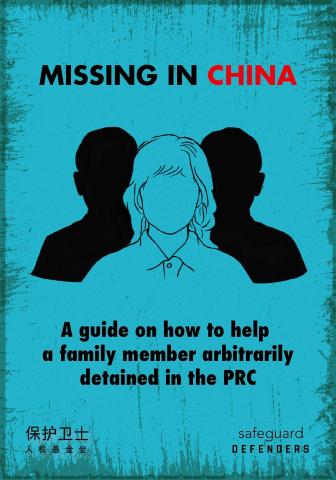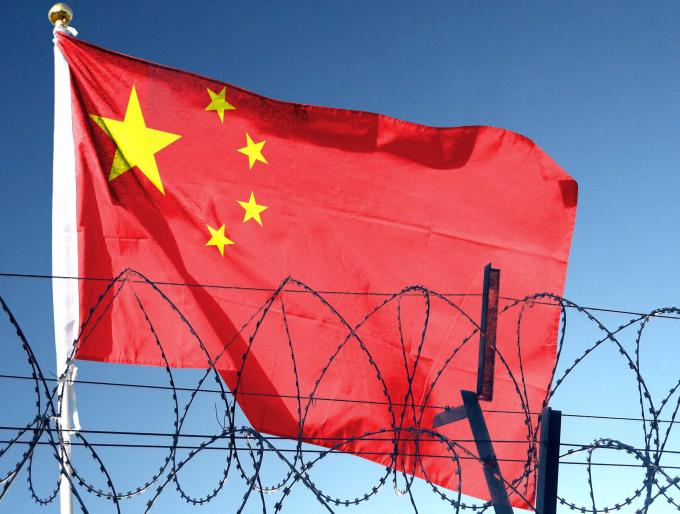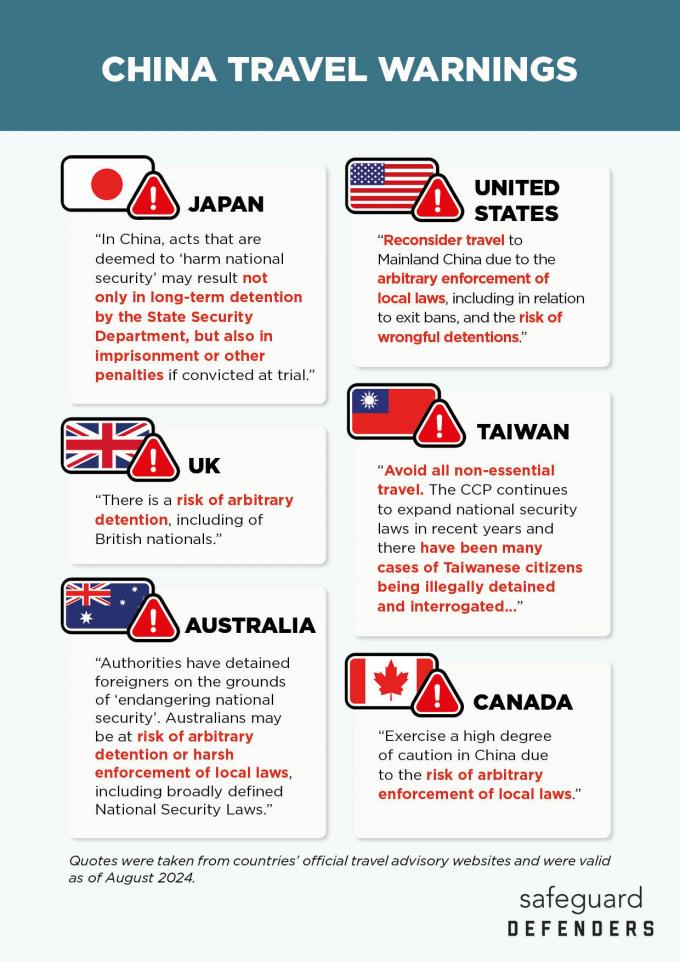Why we published ‘Missing in China’ in Japanese
This February we published a practical handbook to help those whose loved ones have been disappeared by the police in China. Missing in China was published in response to the growing number of foreigners arbitrarily detained in the People’s Republic.
The handbook is in both English and Chinese but we also made a Japanese language version -- the first time we have published in Japanese. If you haven’t got your copy yet, find it here (English), here (Chinese) or here (Japanese).
When we started working on this guidebook, we realized that more than any other country, Japan has reportedly been the most heavily targeted in China in terms of detentions of its citizens on espionage charges in recent years.
Since 2015, when China’s first counter-espionage law came into effect (it was revised in 2023 when it became even more expansive and vague), at least 17 Japanese citizens have been detained on allegations of spying according to media.

We trawled online records and media reports, many with only the barest of details, and found records of these 17 cases.
At least one of them ended in tragedy. One man in his 70s was detained in 2015 in Beijing. While he was serving a 12 year-sentence, he died in prison even though Tokyo had requested his release on humanitarian grounds.
Use the scroll bar in the graphic below to see all 17 cases.
The lack of information is not unusual. Both China and Japan are reluctant to make these cases public. Staying silent, however, usually does not help. Only one case, that of professor Nobu Iwatini, was apparently resolved using diplomatic pressure from Tokyo. Many others received heavy sentences, some as long as 15 years!
The other well-known case, that of academic Hideji Suzuki, ended with a six-year prison sentence. Suzuki’s case was unusual. When he returned to Japan he didn’t stay silent. He held a press conference and later wrote a book to reveal his treatment in Chinese detention and prison. He described how he was kept for months in China’s incommunicado detention system called RSDL (read more about this practice here).
RSDL is an inhumane system that UN experts have labelled as amounting to an enforced disappearance and a practice that facilitates torture. Suzuki spent seven months (over the legal six-month limit) in RSDL and only saw the sun for 15 scant minutes in that entire time. Many foreigners who are arbitrarily detained in China are held in RSDL, including Australian journalist Cheng Lei and Canadians Michaels Kovrig and Spavor.
Suzuki told the New York Times that “Japan failed him during his six years”, expressing his disappointment that Tokyo did not try harder to free or protect him.
From this list of 17 shown in the above graphic:
- All but one are men
- They include professors, geologists, employees in tech, trading and pharmaceutical companies and even one worker in a care facility
- One died serving his sentence
- Sentences range from three years to 15 years!
- One worked for a Japan-China youth friendship organization
- Another had been living in China for two decades
- Their cases are from all over China, from the far northeast Liaoning province to Guangdong in the very south next to Hong Kong as well as several cases from Beijing and one from Shanghai
Many of the media articles that reported these cases raised strong doubts that the individual could have been spying. China’s counter-espionage law remains ambiguous about what actually constitutes a state secret.
One China-based foreign lawyer told Safeguard Defenders that in China, national security cases were based on the flimsiest of evidence. “National security is a black hole,” he said.
The only case where we have information is that of Hideji Suzuki.
His indictment stated his espionage activities took place at a dinner in 2013 when Suzuki chatted to an official. He remembers that dinner and said he simply asked what the official thought about North Korea’s leader ordering the execution of Jang Sung-taek, his uncle by marriage. This was something that had already been widely reported by global media at the time, so hardly a state secret.

While Japan stands out as having the most detainees on spying charges in China, in recent months, other countries’ citizens have also been arrested.
In early April, Beijing detained three Filipinos on suspicion of espionage in an apparent tit-for-tat measure after Manila detained several Chinese nationals, also on spying charges. The three, two men and one woman were also forced to appear in confession videos that were aired on 3 April on state broadcaster CCTV. This marked a return for forced televised confessions of foreigners after a break of several years, following Safeguard Defenders’ high-profile campaign.
And last October came reports of the first Korean national to be detained on such charges. The individual was not named but was reported to be a former Samsung Electronics employee who was working for a Chinese hi-tech company in Anhui province at the time of his arrest.
We wrote Missing in China not only to empower families help detained loved ones in China, but also to:
- draw attention to this worrying rise in detentions of foreigners
- the lack of rule of law and due process in China’s law enforcement and judicial systems
- And to encourage governments to work together more closely, share information on detentions and call Beijing to account when it does not comply with its consular obligations
Please help to share this article and our Missing in China handbook with anyone who is planning or even just thinking of going to China. There is a small section in the front that includes a checklist of things to do if you have to go to China (reminder: do not take this handbook in any format with you into China, that in itself could be grounds for arrest).
Again, please find out report here (English), here (Chinese) and here (Japanese).



